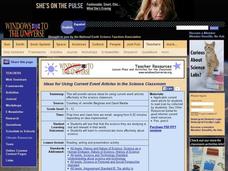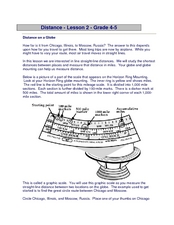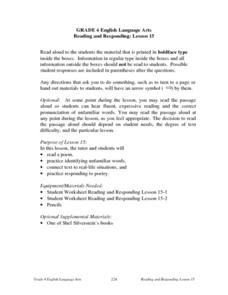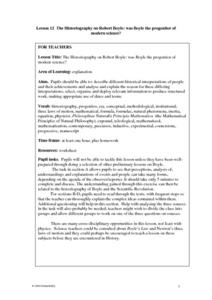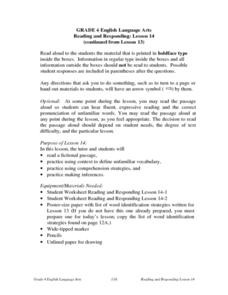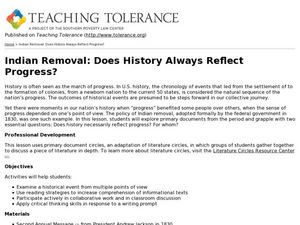Curated OER
Typical Animal Characteristics
How is an animal formed? Scientists use a diagram to examine early post-fertilization stages, and the creation of the blastula. They look at a second diagram to observe the transition from the blastula to a gastrula. Three comprehension...
Curated OER
Ideas for Using Current Event Articles in the Science Classroom
It is important that future responsible scientists and citizens are able to read and analyze scientific literature. Here you will find four ideas for bringing current science event articles into your classroom. Suggestions range from...
Curated OER
Distance on a Globe
In this world globe instructional activity, students read a detailed one page text about how to measure distance on a globe. Students answer 5 questions that will require a globe.
Curated OER
Challenges to the Concert System
A panoramic view of the European revolutions of the 19th century ties these slides together, which feature paintings and maps to illustrate the effects of each revolution. Details and information about the Greek, Belgian, French, and...
Curated OER
Nonfiction Genre Mini-Unit: Persuasive Writing
Should primary graders have their own computers? Should animals be kept in captivity? Young writers learn how to develop and support a claim in this short unit on persuasive writing.
Novelinks
Tuesdays with Morrie: Concept/Vocabulary Analysis
New to using Tuesdays with Morrie? Check out this five-page resource that provides an overview Mitch Albom's book, its features, themes, and literary devices. The packet also includes suggestions for research projects.
Curated OER
Love in a Time of Tv Hysteria
Students read a longer text and participate in a number of comprehension activities.
Curated OER
Reading and Responding -- Lesson 15
Fourth graders work independently or in a small group to (1) read a poem, (2) identify unfamiliar words, (3) connect text to real-life situations, and (4) respond to poetry. Reading passage, comprehension questions, and teacher script...
Curated OER
The Tides-Ups and Downs
Students investigate tidal patters and the forces that cause the tides. In this tidal lesson plan, students explore and research the tides and complete 43 questions about the causes of the tides, how they are monitored and measured and...
Curated OER
Using the Scientific Method
In this scientific method worksheet, learners click on the links in the questions about the scientific method to find the answers to the questions and then come back and answer the questions. Students answer 12 questions total.
Curated OER
Quick Concept Demonstrations
Students research the nervous system. Demonstrations on how to pick up keyed information in text is shown daily and weekly. Reviewed for content is Nerve Impulse, Polarization and Depolarization and perception. A spreadsheet will graph...
Curated OER
The First Conservationists
Students read a story. In this Native American lesson, students learn about Native Americans and their responsibility to take care of a place called Turtle Island. Students learn the vocabulary words generation, befall, interdependence...
Curated OER
In the Middle - Middle School Poetry
Students analyze and interpret poems. In this poetry instructional activity, students are read poems aloud, discuss the meanings in groups, and complete two worksheets after listening to the poems. Links to the worksheets and...
Curated OER
Classy Fractions
In this fractions worksheet, students find the total numbers of students in their class and ask each student 7 questions provided. Students make a tally chart to record the responses and calculate the fraction of the class that answered...
Curated OER
Personal Electronics and Their Energy Consumption
In this energy worksheet, students click on the links in the questions about energy to find the answers to the questions about their personal energy use and then come back and answer the questions. Students answer 3 questions total.
Curated OER
The Historiography on Robert Boyle: Was Boyle the Progenitor of Modern Science?
High schoolers participate in a warm-up activity by attending a football match writing an account of who won the game. They discuss how their account could differ from someone else's account of the game. They discuss how different...
Curated OER
"Split" Character Studies in Crime and Punishment
Students write an essay evaluating split character traits on major characters in Dostoevsky's novel Crime and Punishment. In this lesson students are guided through discussion questions, group assignments, and vocabulary work. The lesson...
Curated OER
Reading and Responding -- Lesson 14
Fourth graders work independently or in a small group to (1) read a fictional passage, (2) use context clues to define unfamiliar vocabulary, (3) use comprehension strategies, and (4) make inferences. Reading passages and comprehension...
Curated OER
Media Literacy Final Project
High schoolers meet as a class to discuss a variety of media literacy topics before breaking into groups to conduct research on one aspect of the topic. In order to gather information, they watch episodes of the Simpson's television show...
Curated OER
Indian Removal: Does History Always Reflect progress?
Students explore the idea that progress for some might not mean progress for all. In this Native American lesson, students recognize different viewpoints about historical events through the study of primary documents. Students decipher...
Curated OER
Diaper Inquiry
Fifth graders carefully examine and investigate the products contained in a diaper. They particularly analyze the crystal sodium polyacrylate, a product developed for use in astronaut diapers. They follow the scientific method, forming...
Curated OER
Card Counting
In this place value worksheet, students follow the directions provided to play a math card game. Students play in pairs to play this game that involves determining the value of a digit depending on its place.
Curated OER
Benjamin Franklin and the U.S. Constitution
Learners explore U.S. history by completing a quiz about civics. In this Benjamin Franklin lesson, students read assigned text about Franklin's role in the development of the Constitution and the creation of a new society. Learners...
Curated OER
3R Activity (Reading-Relating-Responding)
Students read for detail. In this reading comprehension lesson, students read a passage and share their thoughts with a small group. Students reflect upon the passage and develop an oral summary of the text.



